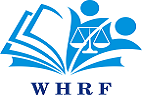GEORGIA
Labour safety standards were not effectively enforced causing high levels of injuries and fatalities at work and prompting strengthening of labour rights legislation. Electoral rules were changed to ensure greater representation of women in Parliament. Authorities continued to use disproportionate and indiscriminate force against largely peaceful protesters. Concerns remained over politically motivated prosecutions. Russia and the breakaway territories of Abkhazia and South Ossetia/Tskhinvali Region continued to restrict freedom of movement with the rest of Georgia. New torture allegations and a related death sparked widespread protests in South Ossetia/Tskhinvali Region.
Background
A state of emergency was declared in March in response to the COVID-19 pandemic, including partial lockdown measures and restrictions among other things on international and domestic travel. A nationwide ban on public gatherings was in force until late April. The restrictive measures were lifted in June, although physical distancing rules remained in place.
Thousands were affected by COVID-19 restrictive measures which negatively impacted the economy, leading to increased unemployment and the closure of many businesses. The government’s COVID-19 anti-crisis plan, announced in April, introduced measures to support the most economically vulnerable groups, including the unemployed, less well-off families, people with disabilities and pensioners. It also covered water, gas and electricity bills for some domestic consumers. Despite these measures the negative effects of the pandemic remained vast, placing increasing numbers of people at risk of poverty.
Following political battles and protests in 2019, in March a compromise was reached on electoral system reform, which introduced a change to the mixed (proportional-majoritarian) system and a lower electoral threshold for parties. Parliamentary elections in October gave the ruling party – Georgian Dream – a new majority required to form the government. The opposition political parties did not recognize the election result and claimed election fraud, with the majority refusing to take up their parliamentary mandates.
The breakaway regions of Abkhazia and South Ossetia/Tskhinvali Region remained under Russian occupation and overall control, with their de facto authorities continuing to deny access to international monitors.
Corporate accountability
Against a backdrop of inadequate monitoring and enforcement of health and safety standards in the workplace, dozens of fatal accidents were reported throughout the year, particularly among miners and construction workers.
In October, despite persistent opposition from some business groups, Parliament passed amendments to the Labour Code which strengthened labour rights and brought national legislation more in line with international human rights law and standards. The amendments strengthened the institutional independence of the Labour Department and extended its mandate to inspect labour standards beyond occupational safety. The amendments also regulated work hours, overtime, night work, mandatory weekly rest, internships and breaks during shifts.
Discrimination
Gender discrimination persisted. The World Economic Forum’s 2020 Global Gender Gap Index placed Georgia 74th out of 153 countries, noting women were close to parity with men on educational attainment and health and survival, but there was a significant gap in economic participation and opportunity, and deep disparity in political empowerment.
After years of campaigning by women’s rights groups, in July, Parliament introduced electoral gender quotas to increase women’s representation in the legislative body. These require all political parties to ensure that at least a quarter of their parliamentarians elected under the proportional system are women, which in the October parliamentary elections led to the election of at least 30 women out of a total of 150.
Freedom of assembly
On 8 November, police used water cannons disproportionately and indiscriminately against largely peaceful pro-opposition demonstrators after several individuals tried to enter the building of the Central Election Commission. The demonstrators were protesting against alleged fraud during the parliamentary elections.
Unfair trials
Local civil society organizations continued to raise concerns over politically motivated prosecutions.
In October, two cartographers who had been working on delimiting the border between Georgia and Azerbaijan were detained and charged with violating the country’s territorial integrity. Prosecutors claimed they used the wrong map and put Georgia at risk of surrendering parts of its territory to Azerbaijan. Local civil society groups claimed the case was trumped-up and aimed to inflict political damage on the present-day opposition which was in power during the delimitation negotiations.
Freedom of movement
In November, the de facto authorities in Abkhazia opened a crossing point with the rest of Georgia for pensioners from Abkhazia who have Georgian citizenship and receive their pensions in Georgian-controlled territory. However, Russian forces and the de facto authorities in Abkhazia and South Ossetia/Tskhinvali Region continued to install physical barriers and restrict movement across the division line with the rest of Georgia and detain and fine residents for “illegal border crossings”.
In July, local resident Zaza Gakheldze was detained near an unmarked stretch of the division line with South Ossetia/Tskhinvali Region and accused of “illegally crossing the border” and allegedly firing on “border guards”, which are crimes punishable by up to 20 years in prison. By the end of the year he remained in Tskhinvali detention centre pending trial.
Right to health
Crossing points shut in 2019 in the South Ossetia/Tskhinvali region remained closed. Georgian authorities and independent sources inside South Ossetia/Tskhinvali Region reported that at least 10 residents of Akhalgori died after they were refused permission for medical transfer to the rest of Georgia.
Torture and other ill-treatment
Torture and other ill-treatment remained widespread in the breakaway South Ossetia/Tskhinvali Region, with three cases including one death reported in August. Inal Dzhabiev and Nikolai Tskhovrebov were allegedly severely beaten following detention on 23 August. Inal Dzhabiev died of his injuries while Nikolai Tskhovrebov was paralyzed with a spinal injury. Photos of their injuries circulated on social media, together with those of a third man, Gennady Kulaev, detained on 24 August. The cases caused a major public outcry, resulting in the dismissal of the entire de facto government and the arrest of eight police officers. By the end of the year the cases against the police officers were pending trial.
